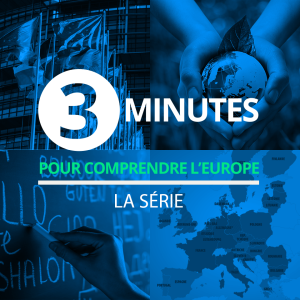One of the events organised to celebrate the fiftieth anniversary of the Elysée Treaty (1963-2013) was the friendly football match between France and Germany on 6th February. Do you think there is any symbolism in using sport to celebrate Franco-German friendship ?
Bernard Cazeneuve : Sport occupies a very important place in our societies. 40% of people in Europe claim to do sport at least once a week and the media impact of sport is considerable. It was particularly relevant to hold this match as part of the Franco-German year, given that football is one of the most popular sports in both our countries. We shouldn’t forget the match on 13th February either, between our two women’s teams.
Michael Link : We should take this opportunity to thank the organisers of the match on 6th February, who agreed to make this match part of the Franco-German year, and also the broadcasters who recalled the context of the Elysée Treaty signing. Thanks to them we were able to show the significance of this event, with its manifold historical importance, to millions of French and German citizens that we might have been unable to reach through other channels.
There was no mention of sport in the Elysée Treaty. Was the power of sport underestimated at the time, and thus also underused ?
Michael Link : Indeed, at that time politicians gave less attention to sport than they do today, and the historical context was particularly difficult (with the end of World War II and the Cold War).
Bernard Cazeneuve : Things changed rapidly in the wake of the treaty. I’m thinking particularly of the role played by OFAJ (Franco-German Youth Office) since 1963, which led to an increasing number of exchanges between the two populations, especially young people. In these exchanges sport has obviously been a means of transmitting positive values (fair-play, anti-discrimination, etc.) of getting to know and understand other people. So I don’t think sport is “underused” and it is certainly not “underestimated” . Sporting exchanges between France and Germany are an every day occurrence, although it would be good to see them developed even more.
Sport, and football in particular, is often presented as a hotbed of nationalism and insularity. Do you think that we can get beyond this image today in the context of constructing a European identity ?
Michael Link : I think we need to move away from this, to my mind outmoded, image of sport (particularly football) as a channel for aggressive nationalism. I would prefer to call it patriotism, which in sport has more to do with enjoyment than enmity. I am not denying that violence does exist in sport (and there again, football often seems to magnify it). But is it truly and systematically linked to any sort of nationalism ?
On the contrary : I think sport has done a lot to give a sort of European awareness. The German Bundesliga and the English Premier League are watched all over Europe, not just in Germany and the UK. Lionel Messi and Cristiano Ronaldo’s supporters aren’t only to be found in Barcelona and Madrid. The Bosman ruling has also had positive consequences, in that it has encouraged the development of a football Europe, by applying the principle of free movement to players.
Bernard Cazeneuve : Through its values of solidarity, respect and cohesion, which are also the values of the EU, and because of the number of its followers, sport symbolises national identity, but it isn’t nationalism. The German philosopher Gunter Gebauer went as far as to say that football, due to the exceptional interest Europeans show in it, is a characteristic feature of Europe. And today Europe takes sport into account, as the Lisbon Treaty gave the Union a competence in this matter.
Sport is a powerful channel for communication, sometimes positive, sometimes negative. The Schumacher-Battiston episode in 1982 was one of the most striking negative examples. To what extent has sport contributed to popular imagination and the image of the other nation on both sides of the Rhine ?
Michael Link : I prefer to remember the World Cup organised by Germany in 2006, which we lost, without losing any of the party atmosphere which we had been enjoying since the start. The German people showed that they are friendly and open, that they know how to enjoy themselves with just enough patriotic spirit and not too much. I hope that what people remember will be this event, and not what happened in 1982.
Bernard Cazeneuve : I share Michael’s views, and I remember that evening in July 1982 very well. There was definitely a lot of passion and an extraordinarily dramatic climax for the French team. That is probably why that gesture has been given so much significance and almost certainly exaggerated. In any case, it didn’t prevent various German international players from playing for French clubs in the 80s and 90s. I’m thinking in particular of Rudi Völer, who won a European cup with Marseille. In the same way, talented French players played for German teams, like Bixente Lizarazu and Franck Ribéry. Any football rivalry which may exist between France and Germany only shows the quality of the players in both countries, so we should be glad of it.
Michael Link : Of course, I myself remember the World Cup organised in France in 1998 - the French team was a reflection of a diverse but unified society - which succeeds. For some people at any rate this image did not correspond with their idea of France. A “black-blanc-beur” (mixed) spirit which has also rubbed off on Germany. Today more than a third of the players in the Mannschaft come from immigration, and sport in general, and football in particular, are powerful vectors of integration and a source of inspiration for many young people.
Find out more




 Actualité
Actualité 


 Revue de presse
Revue de presse  Infographies
Infographies  Podcasts
Podcasts  Cartes et comparatifs
Cartes et comparatifs  Questions-Réponses
Questions-Réponses  Synthèse
Synthèse